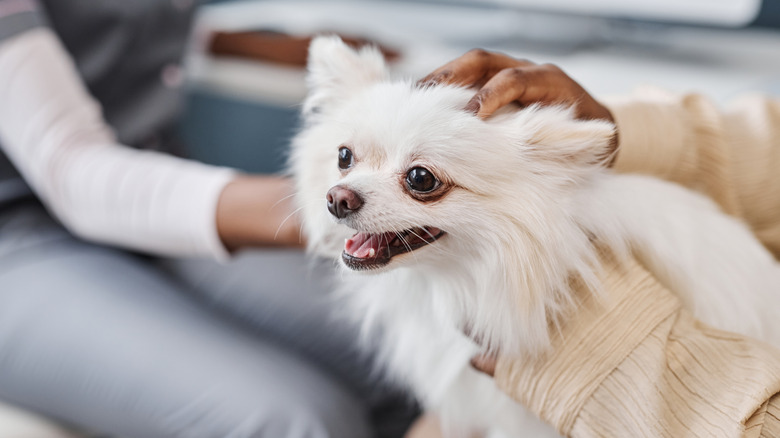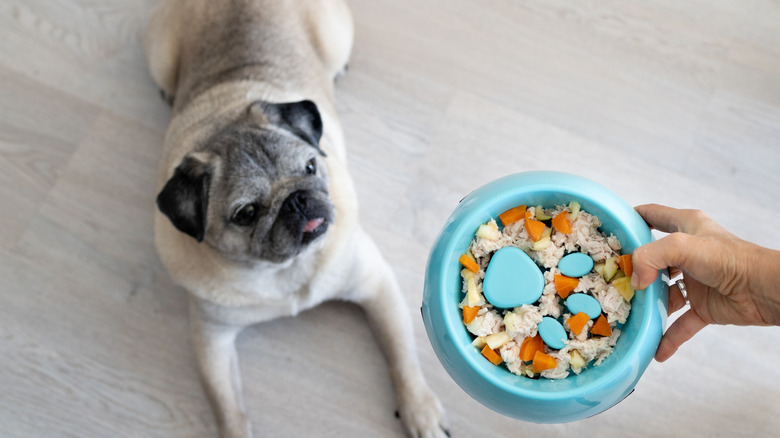What It Means When Your Dog Gets The Hiccups (And How To Help Stop Them)
If you love to look at super-duper cute dogs, you've probably seen the adorable video of a blue heeler puppy growling at his own hiccups. While entertaining, it may also leave you concerned about how a dog gets the hiccups and what you can do to prevent or stop them. Like humans, canines have a diaphragm — a muscle that separates the lungs from the abdomen and helps them breathe. Hiccups happen when that muscle starts to contract on its own, leading to the little "hic" sound heard.
Luckily, hiccups aren't dangerous and tend to go away on their own. As a dog ages, hiccups also start to reduce in frequency, though vets aren't sure why. One possibility is that hiccups are related to development in the womb. Some believe it is a way for the body to practice "breathing" before a puppy is born.
While it's not clear why exactly a dog's diaphragm contracts independently, there are a few things that can make your pup get hiccups a little more easily. These include eating or drinking too fast or eating food that may be a little too spicy. In addition, excess gas in the belly may place pressure on the diaphragm, leading to hiccups. Other possibilities can include your dog getting too excited, exercising a little too hard, or experiencing a sudden temperature change. Lastly, irritants such as dust that cause sneezing may also trigger hiccups.
How you can help when your dog gets the hiccups
While most cases of the hiccups will subside without intervention, there are a few things you can do to help reduce your dog's discomfort. Keep in mind you should avoid attempting to scare your pup or pull on their tongue. These techniques don't work and may even cause injury. Instead, let your canine calm down and offer a sip of water. Slowing down their eating can also reduce hiccups.
@dr.adamchristman52 How to help dog & puppy hiccups! #puppyhiccups #puppytok #dogtok #vettok #hiccups #dogtok #puppytok #newjersey
Veterinarian Adam Christman has a few additional tricks you can use to prevent hiccups in puppies. He suggests using techniques such as scooping your puppy up from behind their legs instead of under their belly. This can prevent pushing too hard on the abdomen, which may reduce the incidence of hiccups. In addition, Dr. Christman recommends the use of a slow feeder to keep your pup from scarfing down food.
It's also a good idea to talk to your vet if your dog tends to over consume food or water and then get hiccups after, has the hiccups often, or they don't resolve after a few hours. They can help rule out any chronic issues such as heart or lung problems. Luckily, most hiccups won't cause any long-term trouble.

